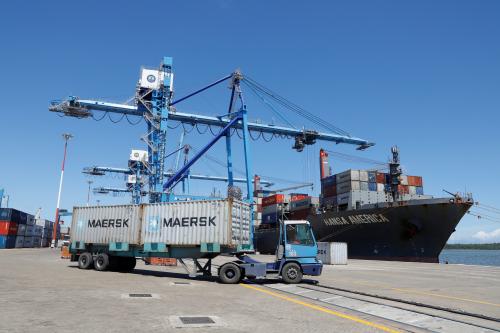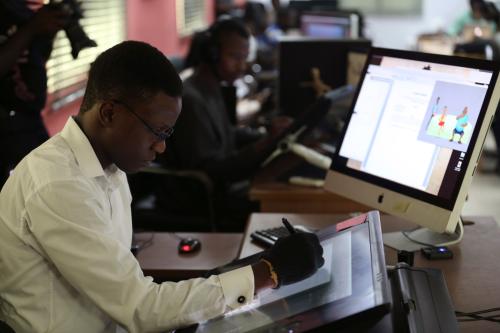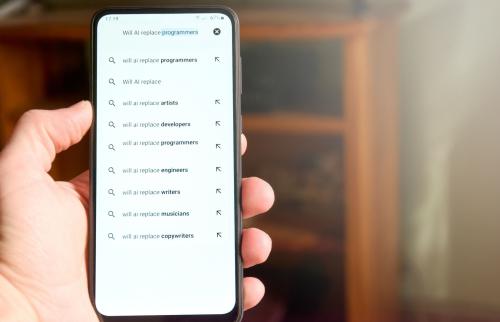Spain pursues Africa as a strategic partner with its Africa Focus 2023 plan
Africa continues to offer attractive diplomatic and economic opportunities to external partners: On Monday, March 29, Spain launched its plan to increase economic engagement and overall presence in Africa as Prime Minister Pedro Sanchez unveiled “Africa Focus 2023.” The plan also aims at addressing challenges outlined in the 2030 Sustainable Development Agenda. The Madrid launch of Africa Focus 2023 was attended by Ghanaian President Nana Akufo-Addo, African Development Bank President Akinwumi Adesina, Kenya’s head of trade, and foreign ministers from Senegal and Ghana. Sanchez plans to follow up the launch with visits to Angola and Senegal later this month.
Until recently, Spain’s initiatives in Africa have focused on security, human rights, governance, poverty, and combating social exclusion. In recent years, Spain’s relationship with in Africa was primarily focused on North Africa but with the Africa Focus 2023 plan, it is targeting more countries for engagement on economic growth, peace and security, and development initiatives. For example, the plan highlights relationships with countries in the Sahel, West African coast, and the Gulf of Guinea for peace and security efforts. It highlights Morocco, Algeria, Rwanda, Tanzania, and Ghana in the economic sphere. The Master Plan for Spanish Cooperation 2018-21 further targets Mali, Niger, Senegal, Ethiopia, and Mozambique as countries for development cooperation.
Despite Sanchez’s push for commercial opportunities for Spanish businesses, according to Politico, the plan is meeting reluctance from Spanish business leaders given worries over political instability and corruption. Importantly, Sanchez has emphasized that the African Continental Free Trade Act (AfCFTA) can be great for Spanish businesses.
In addition to the goals above, Spain also hopes to curb migration through economic growth in the region. According to the Associated Press, given that thousands of African migrants have been taking the risky and often deadly journey to Europe through Spain, Spain has been working with North African countries to stem the tide. Indeed, at the launch, Sanchez stated that “lack of opportunities” is a driving force for African migrants and that Spanish investment there might create reasons to stay.
Spain isn’t the only European country accelerating its commercial relationship with the region: The United Kingdom, coming out of Brexit, is also turning to the growing region to strengthen economic ties. Early last year, London hosted a U.K.-Africa Summit with a pledge to be the G-7’s biggest investor in Africa by 2022. The U.K. efforts have not been met with universal applause, though: According to Bond, a U.K. network of organizations working in international development, the U.K.- Africa Summit overlooked issues such as sustainable development and disregarded the importance of African civil society in the process.
For more on opportunities for the U.K. in Africa, see the blog by Chuku Chuku, OIC manager and forecaster with the African Development Bank, “The ABC triangle presents an opportunity for an interesting reset to the relationship between the UK and Africa.”
Technology expansions in Kenya and South Africa
Last week, Safaricom launched its 5G network in Kenya, making the East African country the second in sub-Saharan Africa to launch such a network. South Africa became the first when Vodacom began a roll out of its 5G network there in May 2020. Like in South Africa, the launch of the new 5G network in Kenya will occur in pieces, beginning with both individuals and businesses in Nairobi, Kisumu, Kisii, and Kakamega. Over the coming year, Safaricom intends to expand access to 150 sites across nine towns. Experts hope the technology will bridge the region’s digital divide, which has become more apparent given COVID-19-related lockdowns resulting in increased reliance on internet in all areas of life. 5G networks offer data speeds up to 100 times faster than 4G and can support up to 1 million connected devices per square kilometer (in contrast, 4G can support 100,000 devices per square kilometer). While currently only 3 percent of the world’s mobile connections are on 5G, sub-Saharan Africa will be playing catch-up for some time: Right now, about half of the region’s mobile connections are still on 3G.
In related technology news, on Tuesday, Apple launched its contactless payment service in South Africa. Three South African banks—Absa Group, Nedbank Group, and Discovery Bank—will support the service. Notably, Apple Pay will be the second digital wallet available in South Africa: Samsung launched Samsung Pay there in 2018. While e-commerce and digital payments were already on the rise in the country due to the COVID-19 pandemic, experts believe this new offering will further expand the use of these tools.
For more on efforts to eliminate the digital divide in Africa, see Hafez Ghanem’s Foresight Africa 2020 viewpoint.
Attacks in northern Mozambique disrupt economic activity
On Sunday, the army of Mozambique fought off insurgent rebels for a fifth straight day near the strategic gas-rich town of Palma in northern Mozambique. The conflict extends a three-year insurgency fought in Mozambique’s northernmost Cabo Delgado province, which has, according to the Humans Right Watch, displaced 670,000 and killed more than 2,600. According to the Associated Press, the majority of rebels are disaffected young Muslim men, and Foreign Policy attributes the rise of these insurgents in Mozambique to “the marginalization of majority Muslim population.” The insurgent attacks have become more deadly and frequent since 2020: In fact, rebels captured a port town 50 kilometers south of Palma in August of last year. Although the Islamic State has claimed responsibility for the most recent attack, Reuters was unable to independently verify their claims.
Notably, the attacks also threaten the $20 billion liquified natural gas project near the town run by French oil giant Total. Work on the gas project, one of Africa’s largest private investments according to Bloomberg, had to be suspended in January due to similar insurgent attacks, and work had just resumed last week before new attacks forced Total to evacuate its workforce.
The Brookings Institution is committed to quality, independence, and impact.
We are supported by a diverse array of funders. In line with our values and policies, each Brookings publication represents the sole views of its author(s).








Commentary
Africa in the news: Africa-Spain relations, technology opportunities in Kenya and South Africa, and attacks in Mozambique
April 3, 2021